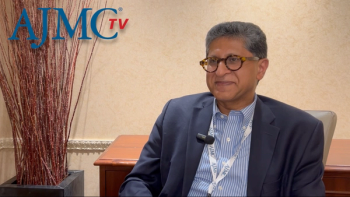
- June 2021
- Volume 27
- Issue 4
FDA Panel Votes to Keep 4 of 6 “Dangling Approvals,” in a Sign of Things to Come
In April 3 days of hearings on 3 checkpoint inhibitors and 6 indications all boiled down to a single question: What should the FDA do when early data called for giving very sick patients access to new drugs, but follow-up studies tell a different story?
From April 27 to 29, the FDA Oncologic Drugs Advisory Committee (ODAC) recommended keeping 4 uses of checkpoint inhibitors for now, while waiting for more data. The panel said 2 other indications should be withdrawn.
As the drug sponsors wait for final decisions from the FDA, it’s clear that cases officials have dubbed “dangling approvals” could become a more regular headache. With dozens of cancer indications approved through the FDA’s accelerated pathway,1 now comes the hard part: When confirmatory studies come up short, officials must decide which indications are worth keeping, given the likelihood that long-term data will show the early decision was the right call.
On April 29, ODAC panelists recommending withdrawing approvals for pembrolizumab (Keytruda) in advanced gastric and gastroesophageal junction cancers, and for nivolumab in advanced hepatocellular carcinoma (HCC).2 They called for keeping an indication for pembrolizumab in advanced HCC, in part because more results in this setting are due within 6 months.3 In other cases, panelists admitted making close calls but said that they did not want to take away limited options. Some confi rmatory trials in question were problematic—a mix of barely missed end points or regimens that did not match those in the trials that led to approval.
On the eve of the hearings, FDA officials Julia Beaver, MD, and Richard Pazdur, MD, wrote in the New England Journal of Medicine (NEJM) that the ODAC reviews did not mean the accelerated approvals were bad decisions.1
“The fact that a clinical trial did not meet its end points does not necessarily mean that the drug is ineffective,” they wrote. “A failure to demonstrate efficacy might be attributable to the selection of the primary end point, the power calculation, hierarchical statistical testing procedures, biomarker selection, trial design, or an inability to select the patients most likely to have a response. “If there are clear reasons why a trial may not have achieved its primary end point and an unmet medical need still exists, the FDA works with sponsors to identify subsequent clinical trials that
could satisfy the accelerated approval requirement,” Beaver and Pazdur wrote.1
Joseph Alvarnas, MD, a hematologist/oncologist who is vice president for government affairs at City of Hope and editor-in-chief of Evidence-Based Oncology™, supports this approach. Before the hearings, he said that the FDA’s decision to review indications was not a surprise and that he expects more of these reassessments in the future.
“One of the challenges is that as you set up a system to enhance the throughput of new agents—and I strongly favor that, because I think for patients and families who need access, getting speed to access is really important, especially in the cancer domain—the ability to dial back based upon further aggregated data is an essential function of a system [that] also imparts greater speed,” Alvarnas said.4
Use of Accelerated Pathway Soars
The FDA’s accelerated approval program calls for giving patients access to drugs based on phase 2 data, if the drugs treat serious conditions and fill an unmet medical need, based on a surrogate end point.5 This process calls on the drug’s sponsor to complete phase 3 trials to confirm the early result. But if a later trial doesn’t confirm the findings that led to the approval, regulators must decide whether to keep the drug on the market or to withdraw approval and ask for more evidence.
The accelerated process took flight with the rise of checkpoint inhibitors—immunotherapy drugs that block PD-1 and PD-L1 proteins—which have been approved to treat dozens of cancer indications. In their NEJM commentary, Beaver and Padzur noted that 35 of the first 76 approvals for checkpoint inhibitors involved the accelerated pathway.
An FDA review identified 10 approvals that warranted follow-up, and between December 2020 and March 2021, sponsors voluntarily withdrew 4 approvals: nivolumab and pembrolizumab in small cell lung cancer, and durvalumab and atezolizumab (Tecentriq) in metastatic urothelial cancer.4 The other 6 were referred to the review process that took place in late April.5
Atezolizumab in TNBC
Panelists voted 7-2 on April 27 to keep atezolizumab on the market for certain patients with metastatic triple negative breast cancer (TNBC). Both the panel and Genentech grappled with how the company will show the value of the PD-L1 inhibitor in this setting going forward. (Of note, ODAC participation differed slightly over the 3 days, as FDA rotated experts in the various specialties for each hearing.)
In voting yes, several panelists cited the fact that few options are available to treat TNBC, which strikes many young women who carry genetic mutations and spreads quickly.
In March 2019, atezolizumab won¨accelerated approval¨in combination with nab-paclitaxel for adult patients with metastatic TNBC whose tumors express PD-L1. The approval was based on a
median progression-free survival (PFS) of 7.4 months, compared with 4.8 months for those on placebo and nab-paclitaxel. At the time, overall survival (OS) results showed a benefit, but the data
were not yet mature.6
A subsequent study, however, not only failed to confirm the PFS benefi t but also showed¨better survival¨in the placebo group, prompting an¨FDA safety alert¨to use atezolizumab only with nab-paclitaxel, not paclitaxel, which was the chemotherapy partner in the later trial.7,8 In presenting their case, Genentech officials highlighted the fact that the second trial wasn’t an apples-to-apples comparison with the one that led to accelerated approval. Besides the difference in chemotherapy, patients in the second trial were pretreated with steroids.
“In the end, it has been challenging for us to point to any single factor that clearly accounts for the difference in efficacy outcomes between the 2 studies,” said Steve Chui, MD, Genentech’s group
medical director and global development lead for Tecentriq. He also noted that as the data from the original study matured, an OS benefit of 33% emerged.
Trying to replicate the trial that led to accelerated approval presents a problem, Chui said. Today the PD-L1 inhibitor is approved in 89 countries and listed in multiple clinical guidelines. So, trying to recruit patients who would know they might receive only chemotherapy would pose significant challenges, he pointed out. Instead, Genentech pointed to 3 other trials in progress, including one involving higher-risk patients than those in the first 2 trials, and another involving early-stage TNBC.
The FDA’s Laleh Amiri-Kordestani, MD, acknowledged the lack of clear-cut options. Even representatives from patient advocacy groups were split on how the FDA should proceed. “This is a difficult decision for me. I was almost on the fence,” said ODAC panelist Susan Halabi, PhD, a biostatistician from Duke Cancer Institute, who voted against keeping the indication. “While
I do appreciate that there is a huge unmet need, my concern is the choice of end points. It seems to me that while PFS may be confirmed in another trial, I am not totally convinced that this will
translate into a meaningful benefit for the patient.”
Panelist Stanley Lipkowitz, MD, PhD, a senior investigator at the National Cancer Institute, said his yes vote was a tough call. Some concessions are in order, he said, including the possibility of another ODAC hearing in the future when more data are available. “I didn’t really hear it from Genentech that if they can’t confirm this, [the indication] has to be withdrawn,” Lipkowitz said.
Approvals in Urothelial Cancer Survive Scrutiny
On April 28, the panel voted 5-3 to keep an indication in pembrolizumab and 10-1 to keep the same in indication in atezolizumab, for first-line treatment in patients with locally advanced or
metastatic urothelial carcinoma who are ineligible for cisplatin-containing therapy.
The vote regarding atezolizumab is pending final OS results of a trial in which panelists felt the data are not yet mature.
For the pembrolizumab discussion, panelist Andrea B. Apolo, MD, head of the bladder cancer section at the National Cancer Institute, said that while she prefers chemotherapy in a first-line
setting, she recognizes that some patients cannot receive it. “Pembrolizumab is active as a second-line treatment for patients with platinum-refractory urothelial carcinoma, and I would argue that pembrolizumab is also active in the first-line treatment setting for patients who have PD-L1–high cisplatin-ineligible [disease],” she said. “As a treating medical oncologist and bladder cancer specialist, I vote to keep pembrolizumab available as a treatment option in the first-line setting for patients who are PD-L1 high.”
Halabi again said her yes vote on pembrolizumab was “a very hard decision for me.” Trends toward longer OS and higher overall response rates seen in the second trial were consistent with early data, but the failure to confirm the early result was still “perplexing.”
In an emailed statement, Merck’s chief medical officer, Roy Baynes, MD, PhD, said, “The positive vote from today’s ODAC meeting supports the potential for [pembrolizumab] in certain patients with high-risk, non–muscle-invasive bladder cancer, who currently have limited nonsurgical treatment options approved by the FDA .We are encouraged by today’s productive discussion and look forward to working with the FDA as they continue their review of our supplemental application for [pembrolizumab] in this patient population.”
In reviewing atezolizumab’s indication in urothelial carcinoma, panelists weighed an interim analysis of the confirmatory trial, which found the OS barely missing statistical significance. The study’s methodology states that if the drug falls short in meeting one benchmark, then others are not calculated, and this bogged the committee down for some time. In the end, most agreed that the best course was to keep the drug available for patients for now. “There aren’t enough harms, really, to pull it and confuse patients and doctors,” Apolo said.
REFERENCES
1. Beaver JA, Pazdur R. “Dangling” accelerated approvals in oncology. N Engl J Med .2021;384(18):e68. doi:10.1056/NEJMp2104846
2. Ingram I. FDA panel splits on anti-PD-1 monotherapy in HCC. MedPage Today. April 30, 2021.
Accessed May 7, 2021. https://www.medpagetoday.com/hematologyoncology/othercancers/
92349
3. Seymour C. ODAC unanimously backs pembrolizumab for second-line advanced HCC.
OncLive. April 29, 2021. Accessed May 7, 2021. https://www.onclive.com/view/odac-unanimously-
backs-pembrolizumab-for-second-line-advanced-hcc
4. McNulty R, Hagen T. FDA to reassess 6 oncology immunotherapy indications granted
accelerated approval. The American Journal of Managed Care®. March 12, 2021. Accessed May
8, 2021. https://www.ajmc.com/view/fda-to-reassess-6-oncology-immunotherapy-indications-
granted-accelerated-approval
5. FDA in brief: FDA Oncologic Drugs Advisory Committee to review status of six indications
granted accelerated approval. News release. FDA; March 11, 2021. Updated March 15, 2021.
Accessed May 8, 2021. https://www.fda.gov/news-events/fda-brief/fda-brief-fda-oncologic-
drugs-advisory-committee-review-status-six-indications-granted-accelerated
6. FDA approves atezolizumab in PD-L1 positive unresectable locally advanced or metastatic
triple negative breast cancer. March 8, 2019. Updated March 18, 2019. Accessed May 8, 2021.
https://www.fda.gov/drugs/drug-approvals-and-databases/fda-approves-atezolizumab-pdl1-
positive-unresectable-locally-advanced-or-metastatic-triple-negative
7. Roche presents new data from multiple phase III studies of Tecentriq in triple negative breast
cancer at ESMO Virtual Congress 2020. News release. Roche; September 19, 2020. Accessed
May 8, 2021. https://www.roche.com/de/media/releases/med-cor-2020-09-19.htm
8. FDA issues alert about efficacy and potential safety concerns with atezolizumab in combination with paclitaxel for treatment of breast cancer. FDA. September 8, 2020.
Accessed May 8, 2021. https://www.fda.gov/drugs/resources-information-approved-drugs/
fda-issues-alert-about-efficacy-and-potential-safety-concerns-atezolizumab-combination-
paclitaxel
Articles in this issue
over 4 years ago
Dollars and Senseover 4 years ago
Weidner et al, Appendicesover 4 years ago
Real-World Evidence Is Key to Accelerating Oncology Approvalsover 4 years ago
Biosimilars Drive Savings in Medicare’s Oncology Care Modelover 4 years ago
A Social Worker Leads ACCC, and Her Timing Is PerfectNewsletter
Stay ahead of policy, cost, and value—subscribe to AJMC for expert insights at the intersection of clinical care and health economics.









